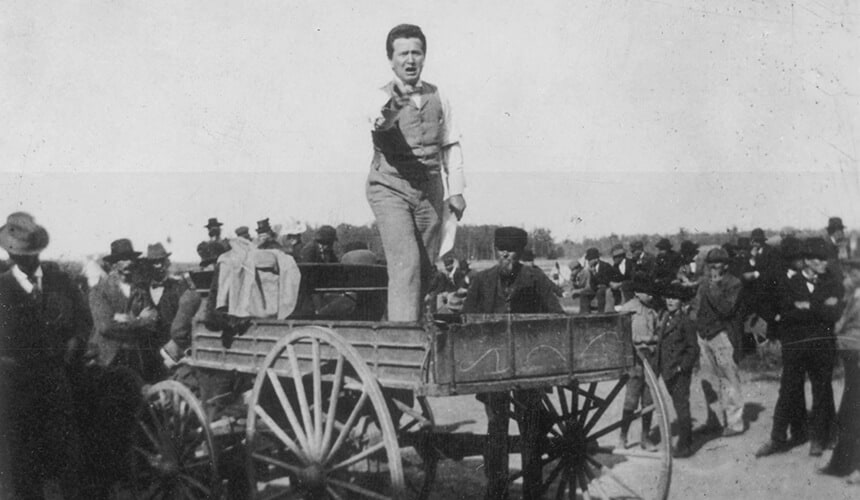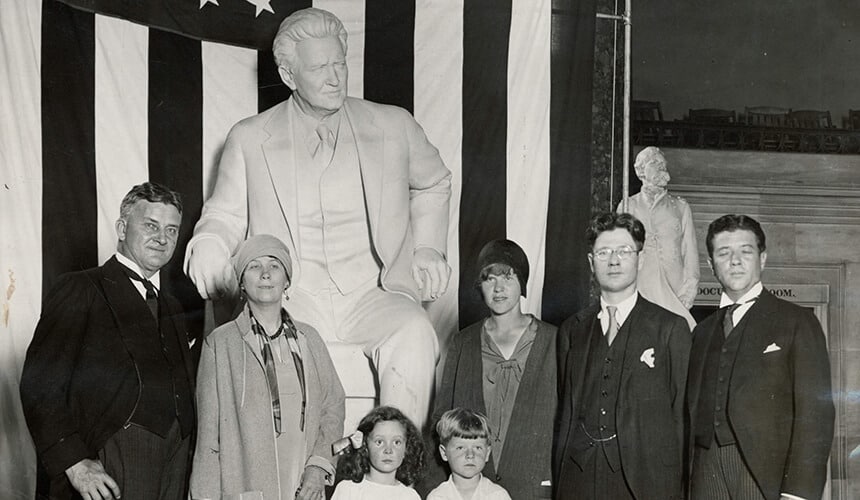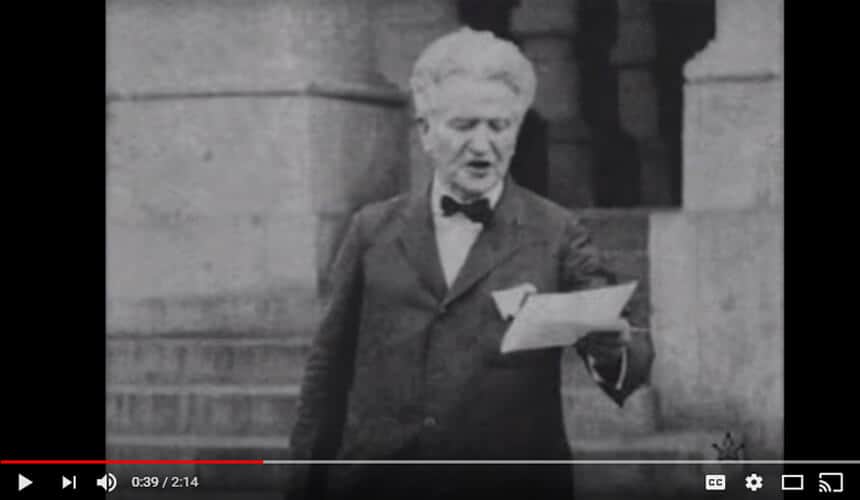Robert La Follette
The fire of “Fighting Bob”
One of the most fiery and influential American politicians of the 20th century began as a struggling UW student well known for his campus pranks.
Robert La Follette BS1879, LLD1901, the eventual architect of the Progressive movement, was also known for devising exploits that included putting a farm animal on the balcony of University Hall, stealing grapes from the experimental farm, and taking croquet sets from Ladies’ Hall.
His academic performance was shaky. In fact, John Bascom, the university’s president, cast the deciding vote to allow him to receive his degree.

La Follette delivers one of his fiery radio addresses in 1924. The university pays tribute to the passionate senator in its Robert M. La Follette School of Public Affairs.(Image courtesy of the Library of Congress.)
He excelled, however, at oratory. His abilities won him the Interstate Oratorical Contest. Those skills eventually became central to his political success as a reformer railing against machine politics, corruption, and the influence of monopolies and big business.
After gaining a UW law degree in a matter of months, he became Dane County district attorney and was elected to Congress at age 29.
After three terms, he returned to private practice and ran for governor three times before being elected in 1900. During that campaign, he gave 208 speeches in 61 counties, drawing large crowds.
La Follette won and served until 1906, advocating for the nation’s first worker’s compensation system, progressive taxation, railroad rate reform, the open primary system, and the Wisconsin Idea.
From The Park
Free men of every generation must combat renewed efforts of organized force and greed to destroy liberty.
Source: Robert La Follette: Campaign speech, 1924
From there, he went to the U.S. Senate, where he was known even as a freshman for evangelizing for Progressive causes and gained the nickname “Fighting Bob.”
His vote against a declaration of war in 1917 made him unpopular in the run-up to World War I. “In times of peace, the war party insists on making preparation for war. As soon as prepared for, it insists on making war,” La Follette said.
In 1924 he formed the Progressive Party and ran for president. Although Calvin Coolidge won the White House, La Follette received nearly five million votes.
Months later, he died in Washington.
In 1955, the Senate, which he called “the old rotten Senate,” hung his portrait in its reception room to honor him as one of the five most outstanding senators in U.S. history.
 2° F
2° F

